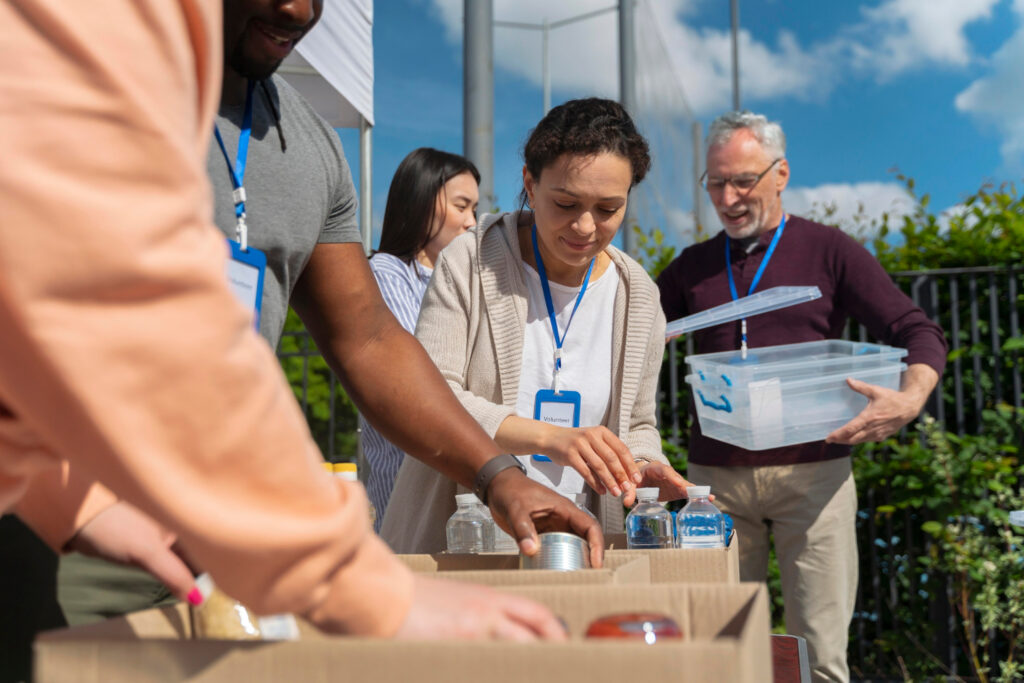Poverty remains one of the most pressing social and economic challenges facing the United Kingdom. Despite being one of the world’s most developed economies, millions of people in the UK struggle to meet their basic needs—food, shelter, heating, and education. Poverty affects not only individuals but also entire communities, regions, and the country’s long-term future. To tackle this issue, the government, charities, community groups, and emerging platforms such as Help One are working together through a range of programmes and policies. This article explores the main initiatives, their impact, and the challenges involved in sustainably reducing poverty.
Government Initiatives
The UK has a complex social security system aimed at supporting low-income households and vulnerable groups. In recent years, the government has taken multiple actions addressing different aspects of poverty—from financial aid to strategic long-term development plans.
Universal Credit is the core benefit system, combining six different payments into a single monthly benefit. Although originally designed to simplify the welfare system and offer flexibility, it has faced criticism for payment delays, administrative complexity, and insufficient support levels.
Key strategies include:
- Child Poverty Strategy – A comprehensive new strategy is expected in 2025, focusing on early childhood development, family support, and the removal of regulatory barriers such as the “two-child limit,” which restricts benefits for third and subsequent children.
- Levelling Up Strategy – This long-term approach aims to reduce regional inequalities and create better economic prospects in areas with high poverty levels. The programme includes investment in infrastructure, education projects, and job creation.
- Household Support Fund – With a budget of £421 million, this fund offers emergency local-level support for essential expenses like food, energy, and utility bills. It plays a crucial short-term role, especially amid energy crises and inflation.
Other government measures include housing subsidies, unemployment support, and training schemes. These policies have the potential to lift people out of poverty if implemented in a sustainable and accessible way.

Charitable and Community-Led Initiatives
Alongside government efforts, non-profit organizations and community structures play a vital role in delivering direct assistance and long-term solutions to those in need.
- The Trussell Trust operates a network of over 1,200 food banks across the UK. In 2023 alone, the charity distributed more than 2.5 million emergency food parcels. Its mission goes beyond food relief—advocating for structural change through research and policy recommendations.
- FareShare specialises in redistributing surplus food from supermarkets, manufacturers, and restaurants to charities and community groups. Every day, the organisation helps feed over a million people through more than 10,000 partner organizations.
- Feeding Britain acts as a coordinating network for hundreds of local partnerships, offering food, social support, and logistical assistance. It also provides skills training to help people achieve greater independence.
- National Energy Action (NEA) focuses on tackling fuel poverty by offering advice, grants for heating support, and promoting energy-efficient housing.
- City Harvest London combines social responsibility with sustainability by collecting surplus food and distributing it to community kitchens, shelters, and support centres.
The Role of Help One in Combating Poverty
Among the many initiatives aimed at social support and poverty alleviation in the UK, Help One stands out for its innovative, holistic, and people-centred approach. Established as a platform uniting volunteers, local communities, and social organisations, Help One’s mission goes beyond temporary relief—it seeks to offer sustainable pathways out of poverty by improving access to resources, education, and ongoing support. At the heart of the initiative lies the belief that the best solutions emerge when people affected by poverty are empowered to participate, learn, and connect.
Help One operates through a mobile and online platform that links users to available services in their area—including food, housing, healthcare, psychological support, and educational opportunities. The system is designed to be highly accessible, even for those with limited digital skills or no stable internet access. Through partnerships with local councils, schools, and healthcare providers, Help One has created an effective network for early identification of needs and timely response.
One of Help One’s most valuable contributions is its personal adviser programme—trained volunteers and social workers who support individuals not just with information, but with motivation and guidance. Every user can receive a personalised plan tailored to their specific challenges, whether related to employment, childcare, debt, or housing. In addition, Help One offers free online courses in essential life skills—such as budgeting, digital literacy, and job searching.
The organization operates on the principle that poverty is not a personal failure, but a systemic issue that demands solidarity and collective action. By building trust, encouraging participation, and activating local resources, Help One offers thousands of people not just a way to survive, but a way to rebuild their lives. Its community-driven model continues to gain recognition as a promising example of social innovation in action.

Child Poverty and Educational Support
Children living in low-income households often face limited access to nutritious food, quality education, and adequate care. Early-life poverty can have long-lasting consequences.
- Free School Meals – These provide children from low-income families with at least one nutritious meal per day, improving health, concentration, and academic performance.
- UNICEF UK runs programmes like “Child Friendly Cities,” encouraging local authorities to create policies and services that reflect children’s rights and needs. School-based initiatives promote values such as respect, equality, and access to opportunities.
- Education Grants and Bursaries – Local councils and charities provide resources for school uniforms, supplies, and access to extracurricular activities, helping reduce the financial burden on families.
Innovative Approaches and Social Innovation
Recent years have seen the emergence of new models that combine direct aid with capacity-building and self-reliance.
- Community Groceries – These are membership-based community stores offering food at symbolic prices. In addition to affordable groceries, they provide cooking classes, budgeting workshops, and other life skills support.
- Multibanks – A newer model, multibanks provide not only food but also essential items such as hygiene products, clothing, and school supplies. These resources are sourced through corporate donations. One example is the London-based multibank backed by former Prime Minister Gordon Brown.

Challenges and the Way Forward
Despite a wide range of initiatives, poverty in the UK remains a deeply entrenched issue. Key obstacles include:
- Inflation and Rising Living Costs – Low-income households are disproportionately affected by increases in the price of energy, food, and transport.
- Lack of Affordable Housing – In many areas, social housing rents exceed what people on minimum incomes can afford, while waiting lists for housing continue to grow.
- Limited Funding – Charities and local authorities often operate with restricted budgets, relying heavily on short-term grants and donations.
Tackling these issues requires a long-term, integrated approach that includes:
- Reforms in social policy and benefit systems that respect human dignity;
- Raising the minimum wage and eliminating insecure work;
- Increased investment in education, skills, and retraining;
- Inclusion of affected communities in decision-making processes.
The fight against poverty in the UK is both challenging and inspiring. While full eradication of poverty requires major transformations, the combination of government policies, civic engagement, local innovation, and digital platforms such as Help One provides a strong foundation for building a more equitable society. With continued commitment, sustainable funding, and the empowerment of those most affected, the UK can move closer to becoming a place where everyone has the opportunity to live a dignified, fulfilling life.